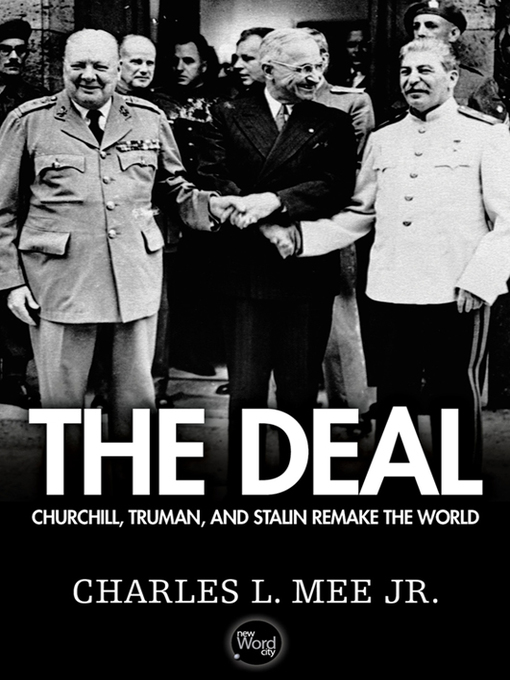For two weeks in the summer of 1945, from July 17 to August 2, Winston Churchill, Harry Truman, and Josef Stalin gathered to reconstruct the world out of the ruins of World War II. They met "only a few miles," as President Truman noted, "from the war-shattered seat of Nazi power" - around a baize-covered table in the Cecilienhof Palace at Potsdam, a suburb of Berlin, a place they later remembered vividly for its hardy mosquitos and muggy heat.
First in Tehran (November 1943), then in Yalta (February 1945), the Allied powers had met, engaging in the cordial horse-trading of properties and promises, to perpetuate a united military front against Germany. Potsdam, however, was different. With Germany defeated, the Allies knew victory in the Far East was imminent. The objective was no longer how to unite for victory, but how instead to divide the spoils and create a new balance of power. In The Deal, Charles L. Mee, Jr., demonstrates how, with national self-interest the primary motivation, peace was destined to be sacrificed to deliberate discord. If Allied harmony would stand in the way of expanding "spheres of influence," then it would become necessary to maintain the political expedient of aggression. What did each power want and were these objectives of sufficient importance to warrant forfeiting peace? Would the outcome have been different had Churchill's rhetoric been less powerfully disruptive, had Stalin been surer of domestic calm, had Truman been more open? Would the history of the world of the last sixty years been the same?
Here is Truman, meeting Stalin for the first time, keeping from him the report of the atomic bomb test, secretly deciding to drop the bomb on Japan, and maneuvering to prevent Stalin from joining the war in the Far East.
Here is Churchill, his health failing, his mind occupied with the fear that the coming election would end his career, and in the course of his often rambling talks, uttering for the first time the "iron curtain" phrase that was to describe world policy for years to come.
And here is Stalin, always the last to arrive, always surrounded by a massive guard, waving aside for the time being the idea of democratic elections in any countries the Communists controlled, losing out on his battle for the biggest reparations from Germany but winning a big slice of Germany for Poland and of Poland for Russia.
Through logbooks, eyewitness accounts, and conference transcripts, Mee vividly reconstructs this moment in history, when three men met to forge a peace and a new face for Western Europe, a tri-partite declaration of the Cold War.
